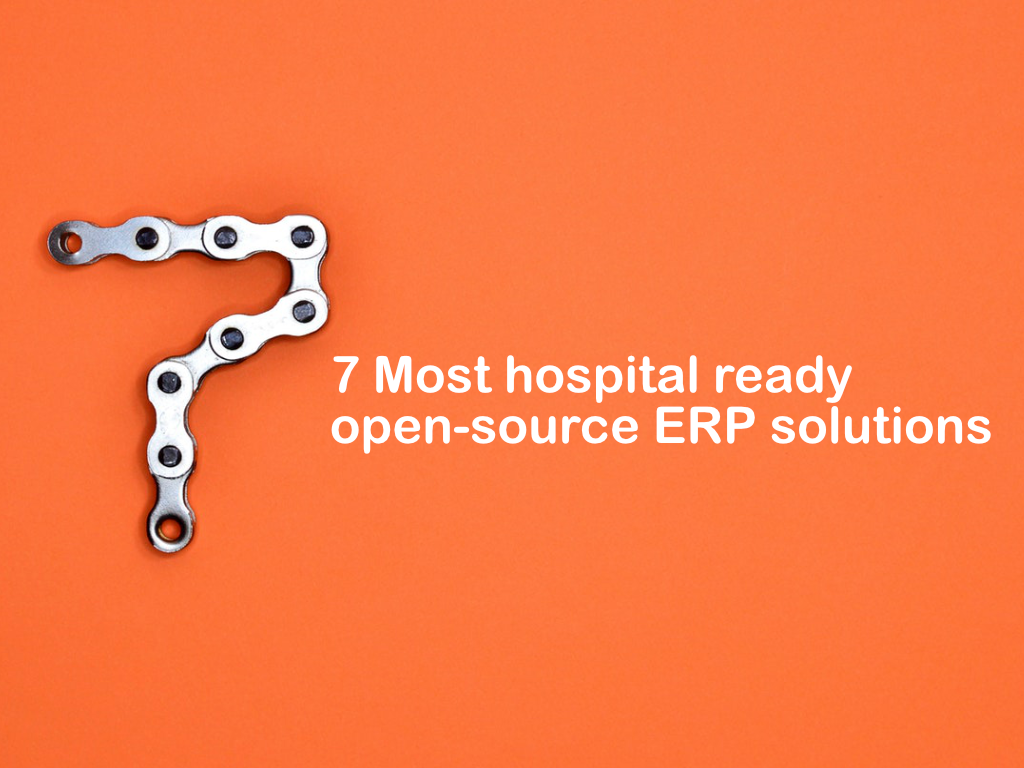12 Free Open-source Inventory and Warehouse Management Solutions
Table of Content
What is an inventory management system?
Inventory management software is a computerized system to manage , track the number of stored goods. Inventory management is a major part of supply chain management.
Inventory management solutions keep track of the goods while moving through the process or stored in the warehouses. Inventory database software helps to save all the details including serial numbers, barcodes, costs, location, the number of goods, events date for every step in the process
For example you could put the sentence here - Most of the ERP "Enterprise resource planning" systems have Inventory management as an internal package. This is one of the important stages of ERP integration. As well as many eCommerce solutions.
Sometimes small and medium-size businesses use Excel to make it simple for managers to keep everything organized in a simple, portable, popular format. However, it can be a nightmare with a rich warehouse and dynamic supply chain or a popular eCommerce site.
Ms. Excel and other open-source spreadsheet programs can be used to manage inventory for small and medium businesses. However, it sometimes requires a spreadsheet guru to create his tools and templates.
The advantages of using Microsoft Excel and open-source spreadsheet programs or office suites (LibreOffice) are: the files will be portable, easy to understand and manage, can be used on cloud-based offices like Google spreadsheet and Microsoft cloud office services. On the downside, it'll consume hours while the dynamic supply chain process gets more complicated. So, here come inventory managers.
Open-source inventory managers
Here we have collected the most popular and powerful standalone and ERP-based open-source/ free inventory management solutions.
A. Standalone inventory and warehouse solutions
1- PartKeepr
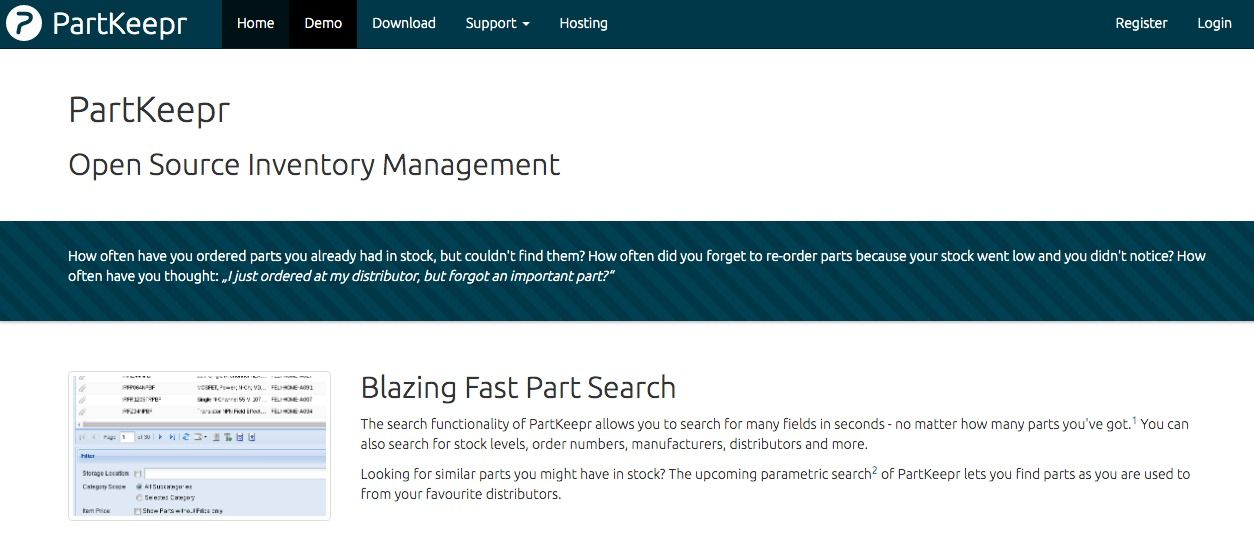
PartKeepr is a free self-hosted inventory manager, released as an open-source Libre software under GPL. PartKeepr offers community support and commercial supports, and comes with many advanced features that help users locate, track, edit manage their stock with ease and efficiency.
PartKeepr is recommended for small and medium-sized companies/ inventories and warehouses.
PartKeepr Highlights
- Free/open-source(GPL)
- Clear easy-to-use interface
- Self-hosted
- Easy-to-install and configure
- For small/ medium/ large size companies
- Powerful search functionality.
- Tracking tool
- Fast full-text search
- Parametric search
- Import/ Export CSV

2- Snipe-IT
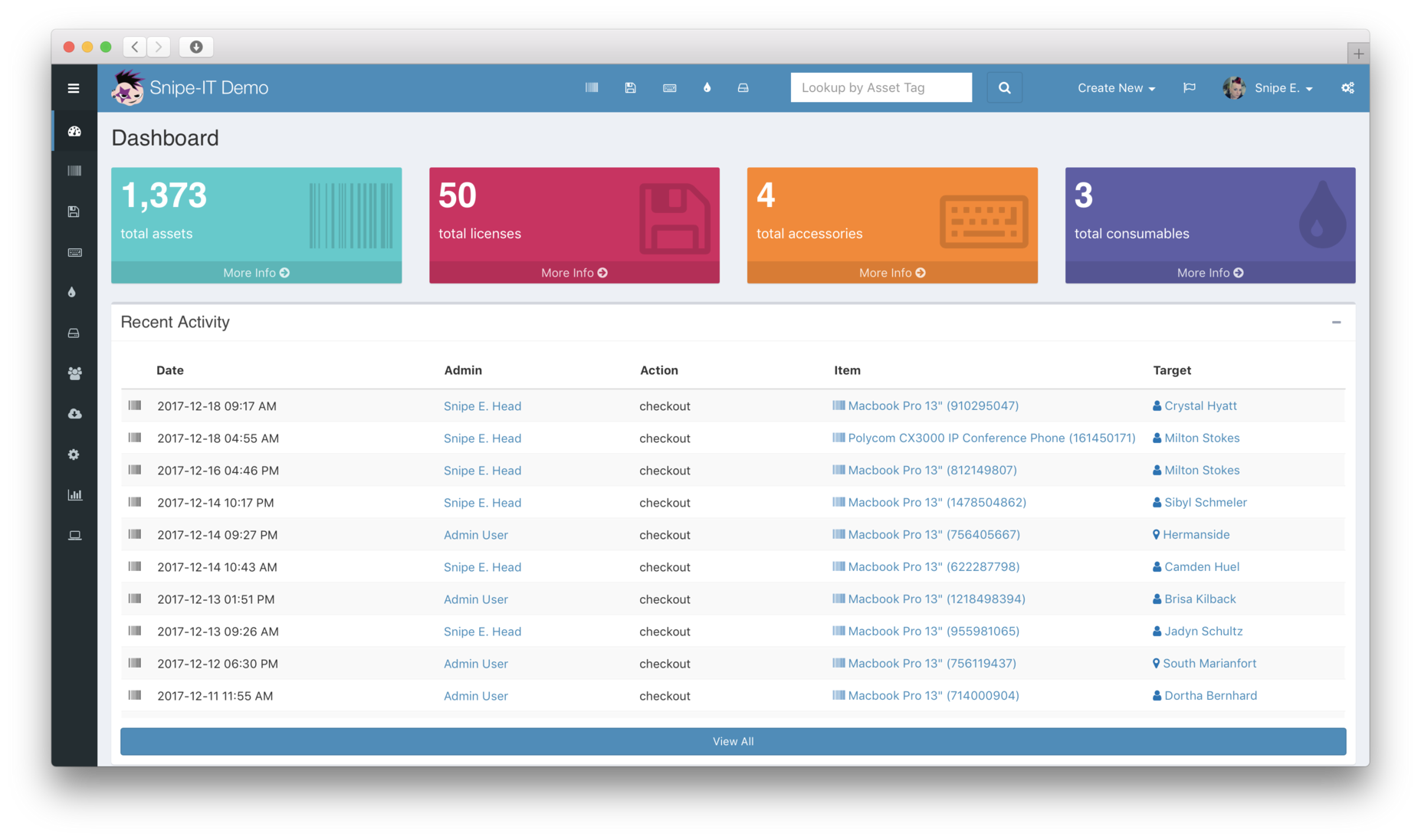
Snipe-IT is an open-source self-hosted web-based asset and warehouse management package. We recommend this package for businesses which have multiple locations and hundreds of users.
Snipe-IT Highlights
- Free (Libre) open-source software (FLOSS)
- Developer-friendly with REST-API
- Frequent updates and bug-fixes
- Trusted by customers from all over the globe
- Notification (Email, Slack)
- Multi-lingual support
- Admin dashboard to track recent activities
- Powerful asset management
- Asset auditing
- QR code and barcode generator
- License management
- History manager
- Digital signature support
- Import/ Export assets
- Asset tracking
- Asset search.
Read more about Snipe-IT features and technical specifications in our review here.

3- Storaji
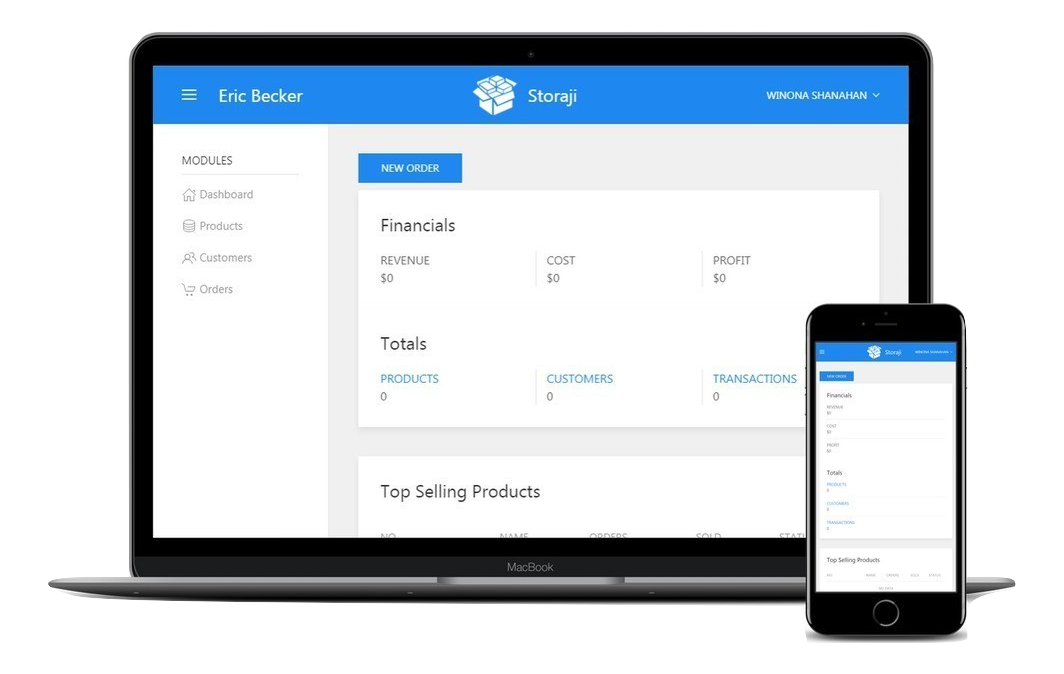
Storaji is another simple yet powerful open-source inventory manager. It's a popular project among experienced tech users and developers. However, it's currently not maintained.
Storaji works on mobile and desktop. It comes with a responsive design which makes it fit to work on multiple mobile and desktop screen, touch screens like tablets and large screens.
Storaji Highlights
- Cross-platform; Windows, Linux, and macOS
- Free
- Easy-to-use
- Recommended for small and medium businesses
- Inventory manager
- stock manager
- product manager
- customers manager
- PDF/ CSV export
- Order manager
- Statistics
- Multi-lingual support
- Currency change support
Note; Storaji is no longer maintained, and it has not been updated for 2 years. The user can install it on his server and configure it.

4- OpenBoxes
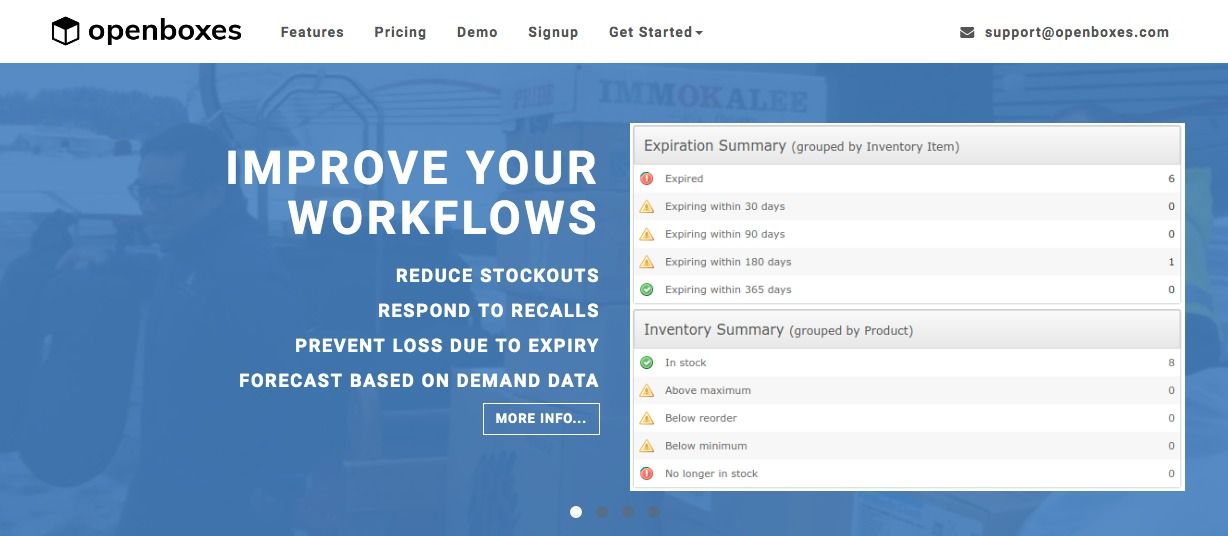
OpenBoxes is a free web-based inventory and asset management package. It's an open-source software package which allows developers to extend its functionalities and business owners to use it freely.
It's also a cross-platform software package, built with Java, which means it'll work smoothly on any Java-supported platforms.
OpenBoxes Highlights
- Cross-platform (Java-based); Windows, Linux, and macOS
- Self-hosted
- Manager multiple warehouses in different locations
- Advanced tracking options
- Dynamic stock calculation
- Products type configuration and support
- Custom fields and metadata-aware products
- Import and export options
- Informative dashboard
- Powerful location browsing (Geo-based, groups, internal and external locations)
- Reporting tools
- Multi-languages
- Multiple users with advanced group permission support
- Email notification
- Custom attributes
- Flexible deployment options for the enterprise

5- Inventory Manager
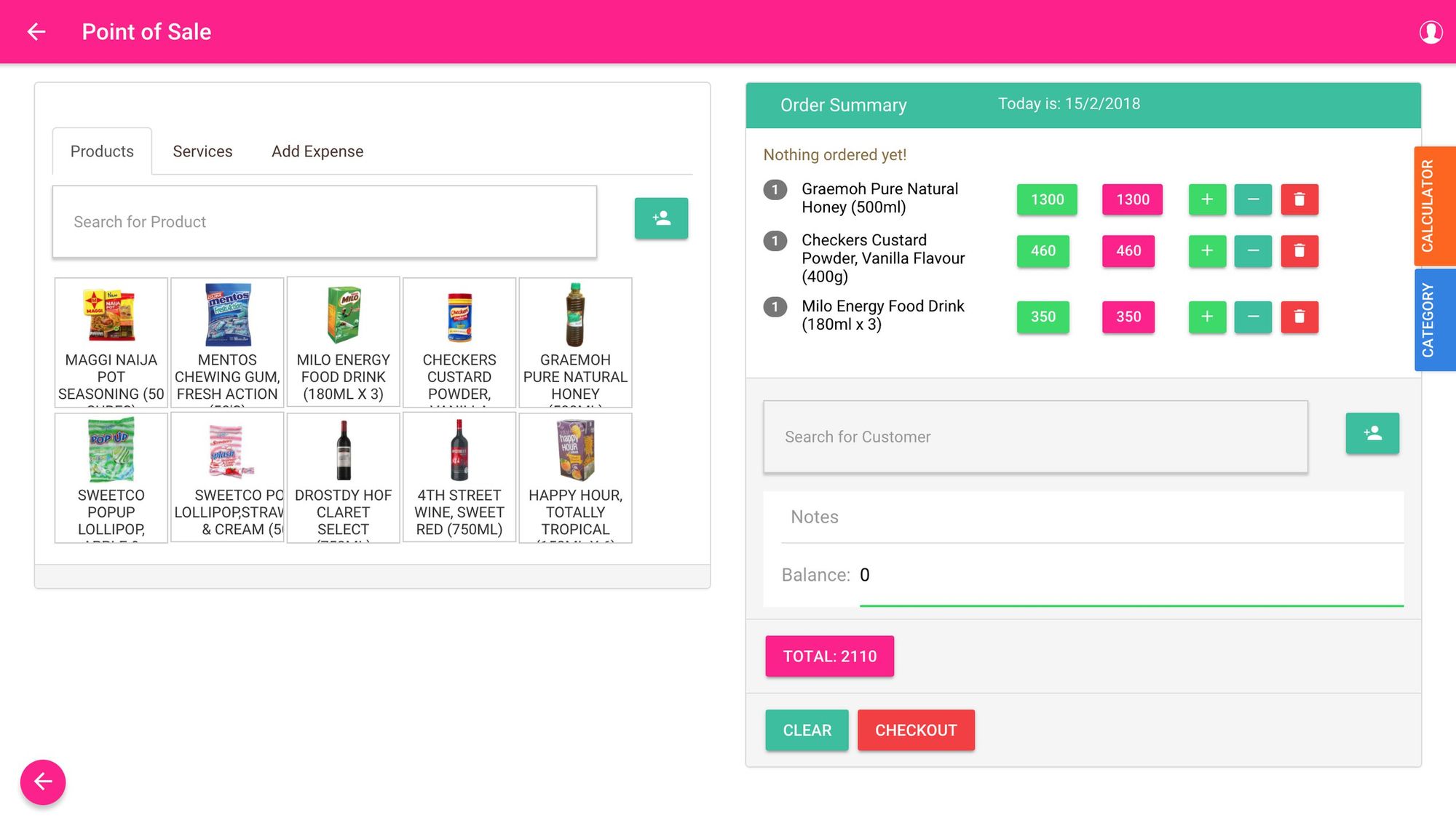
Inventory Manager is an open-source, free desktop inventory manager. It's perfect for small companies. It's built by the same developers who created Pharmacy Likewise, it has many similarities with it in terms of stock management and barcode/ QR code scanning.
Furthermore, it is easy to install, configure and use for users with good technical experience. Additionally, it offers a desktop version for Windows and macOS.
Inventory Manager Features
- Stock manager
- Search tool
- Tracking tools
- Invoices manager
- Categories manager
- Barcode printing support
- User manager
- Supplier management
- Desktop Notification
- Bulk item manager
- Reports and charts
- Barcode generator
- Damaged item management

B. ERP-based inventory
The benefits of using ERP “Enterprise Resource Planning” are: they are modular, extensible, designed to fulfil the requirements of different business sizes, and most of them have built-in accounting, notification, and users management system. Many businesses prefer using ERP-based inventory solutions as it's easier to scale/ extend for their current and future requirements.
6- ERPNext
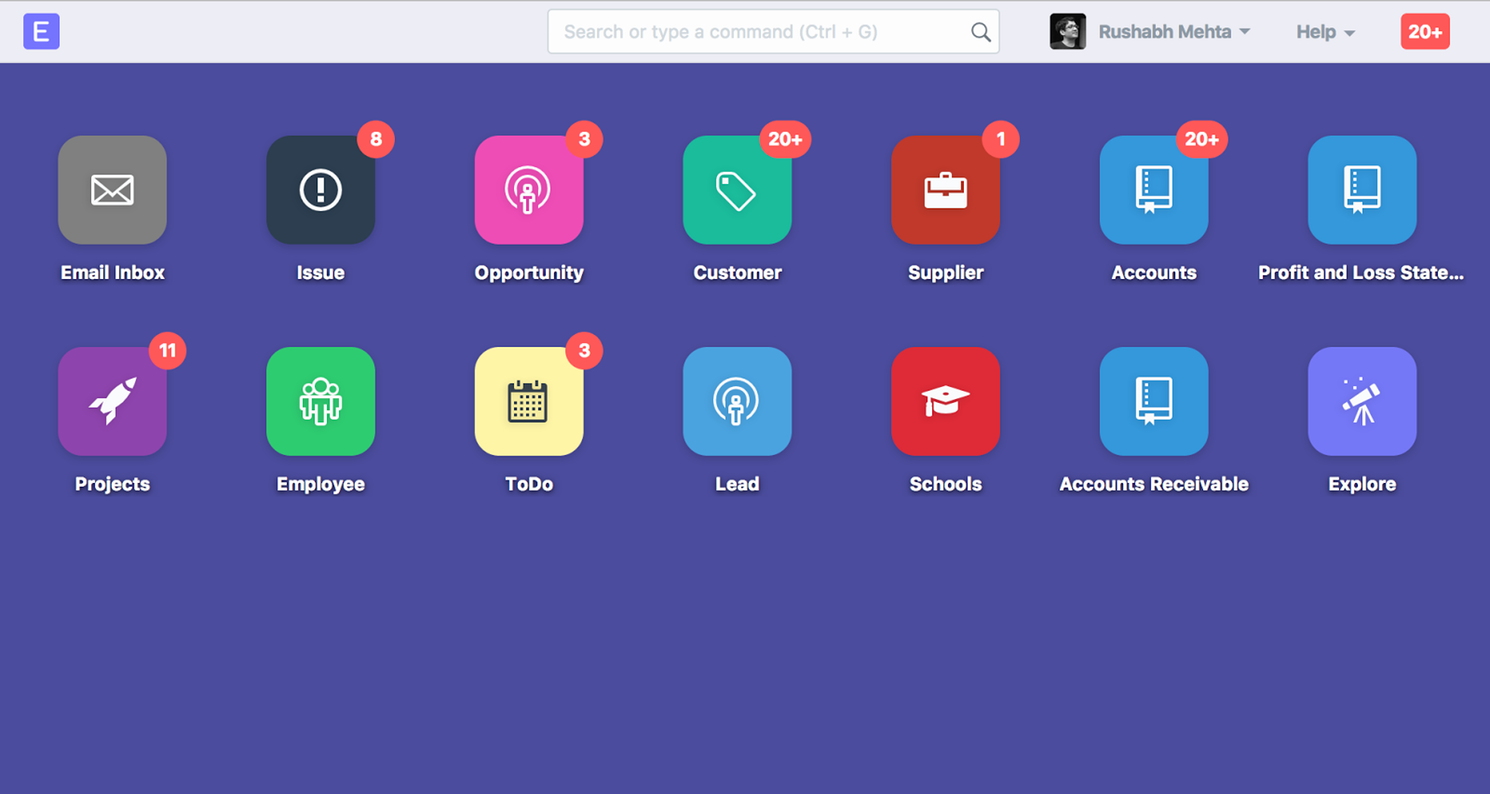
ERPNext is an open-source ERP solution that works for small, medium and enterprise-class companies. It has a built-in inventory management module along-side many modules required by the facility.
ERPNext is supply chain entered ERP, It's built to manage all operation required. It has been used by many companies all around the world.
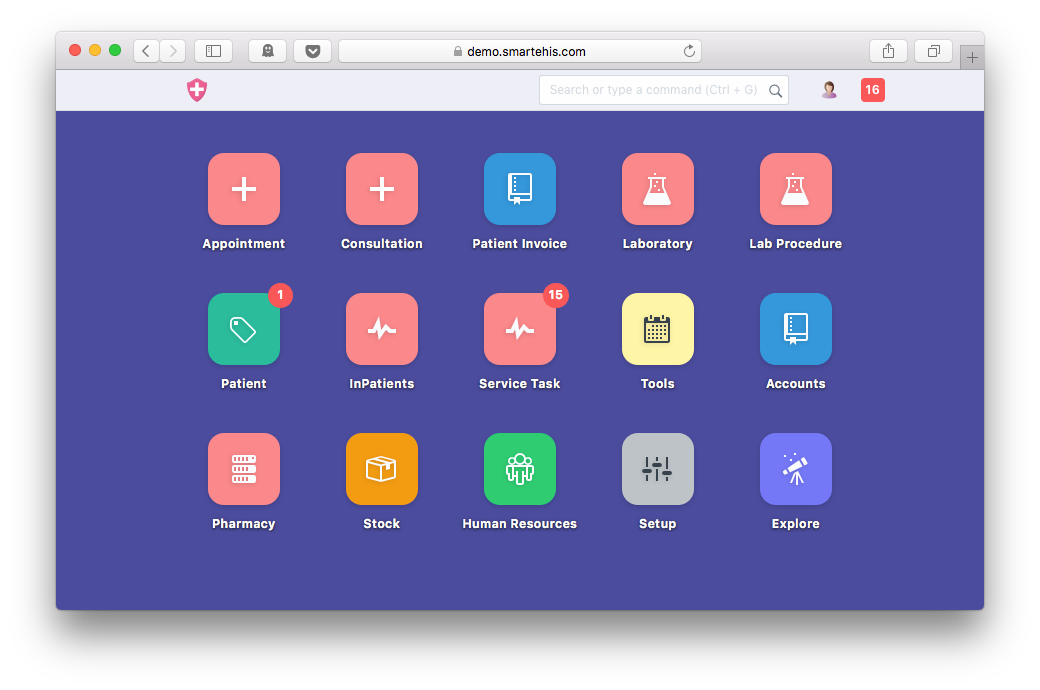
7- InoERP
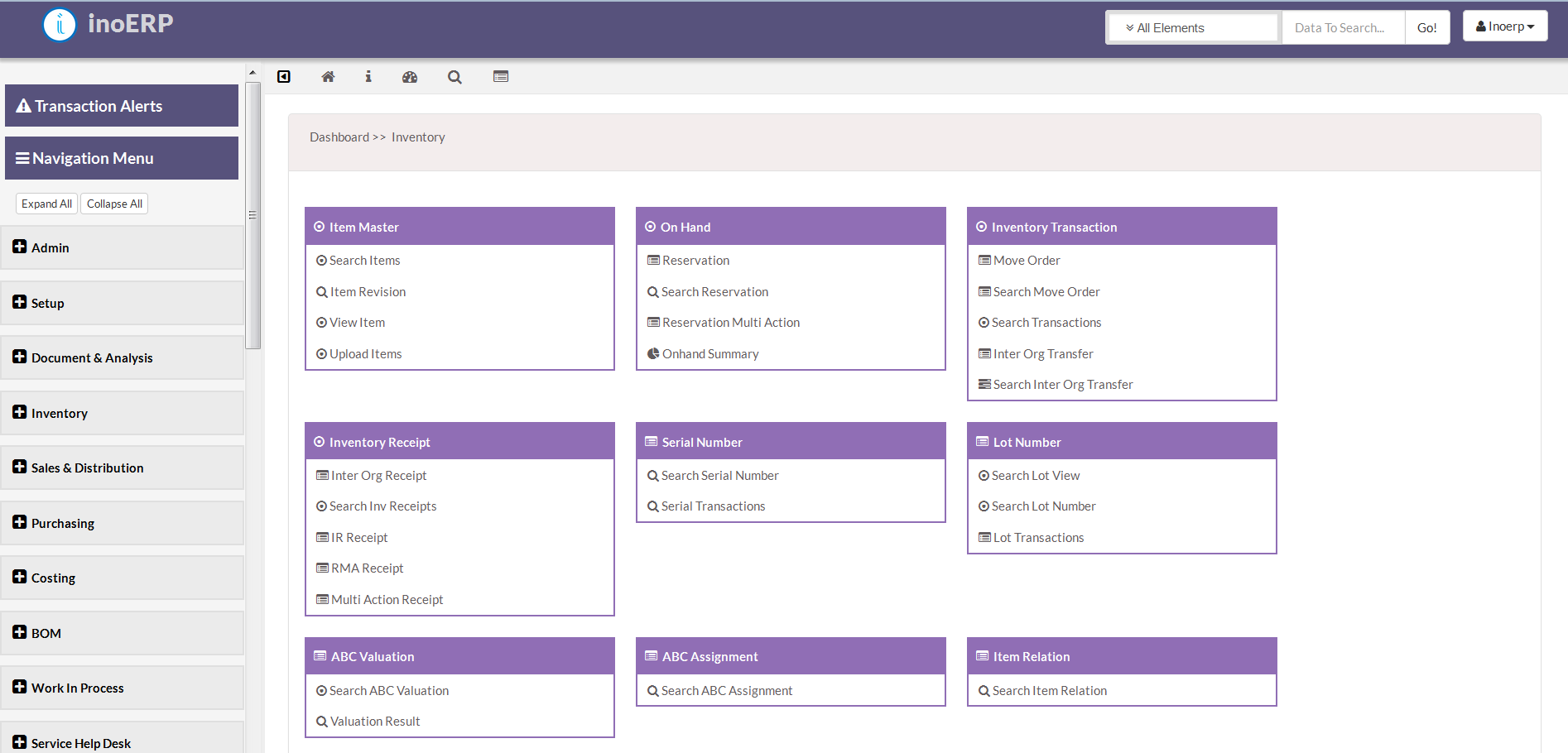
InoERP is an open-source easy-to-install, configure and use ERP solution. It has many modules/ extensions for the supply chain that include: sales, distribution, inventory, purchasing, forecasting, planning, POS (Point-Of-Sales) and eCommerce module.
InoERP has also many advantages as its ecosystem contains dozens of extensions, themes, language packages. It has a responsive design to work on mobile and tablets, and an advanced reporting system with built-in diagram visualization tools.

8- ERP5
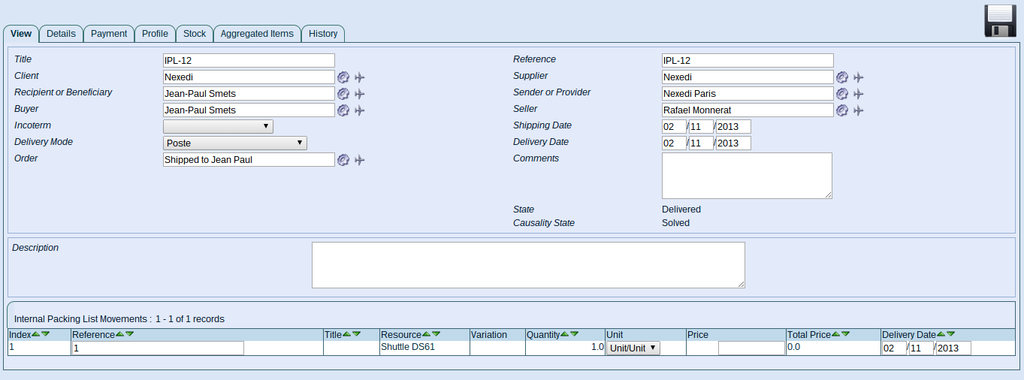
ERP5 is an open-source self-hosted ERP solution. It's preferred by NGOs, governments in many countries around the world, as well as medium to small size companies.
ERP5 has integrated modules for inventory, accounting, supply chain management, eCommerce, POS (Point-of-Sales), CRM and HR.

9- Dolibarr
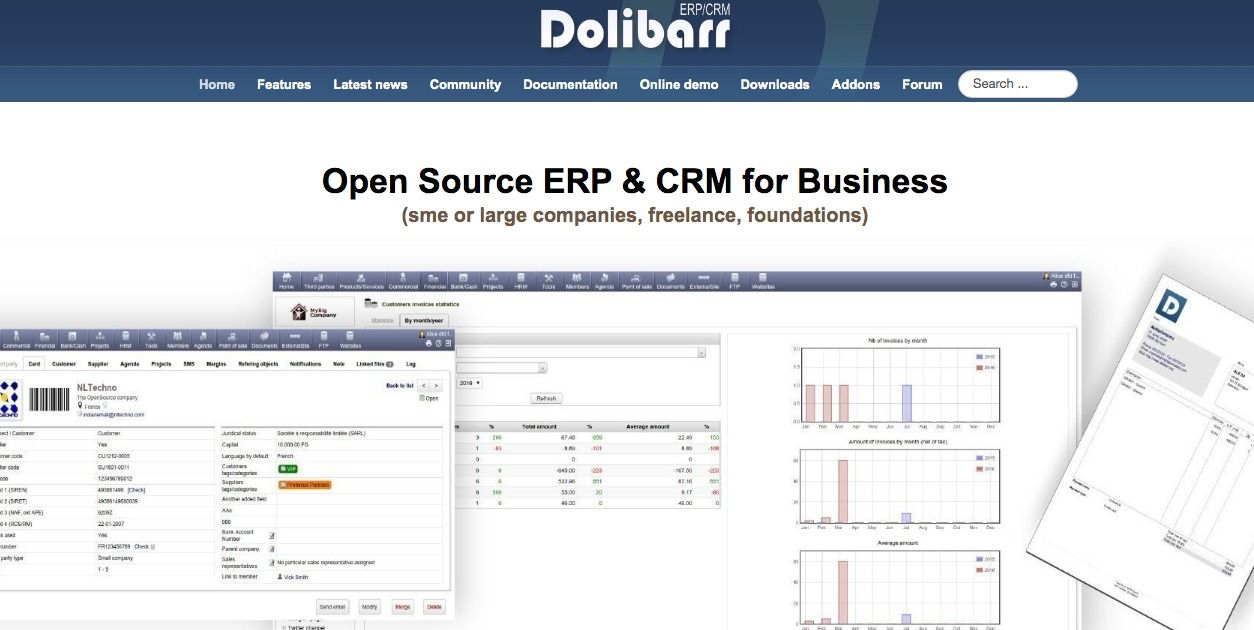
Dolibarr is a simple yet powerful ERP solution with a rich ecosystem. It's popular in many countries in the European Union like Italy, France, Greece, and Germany.
Dolibarr offers a powerful built-in inventory/ warehouse stock management module, alongside the necessary tools to keep the managers updated about their stock.
Dolibarr is a free and open-source, and it's supported by a powerful community of developers and users.

10- LedgerSMB
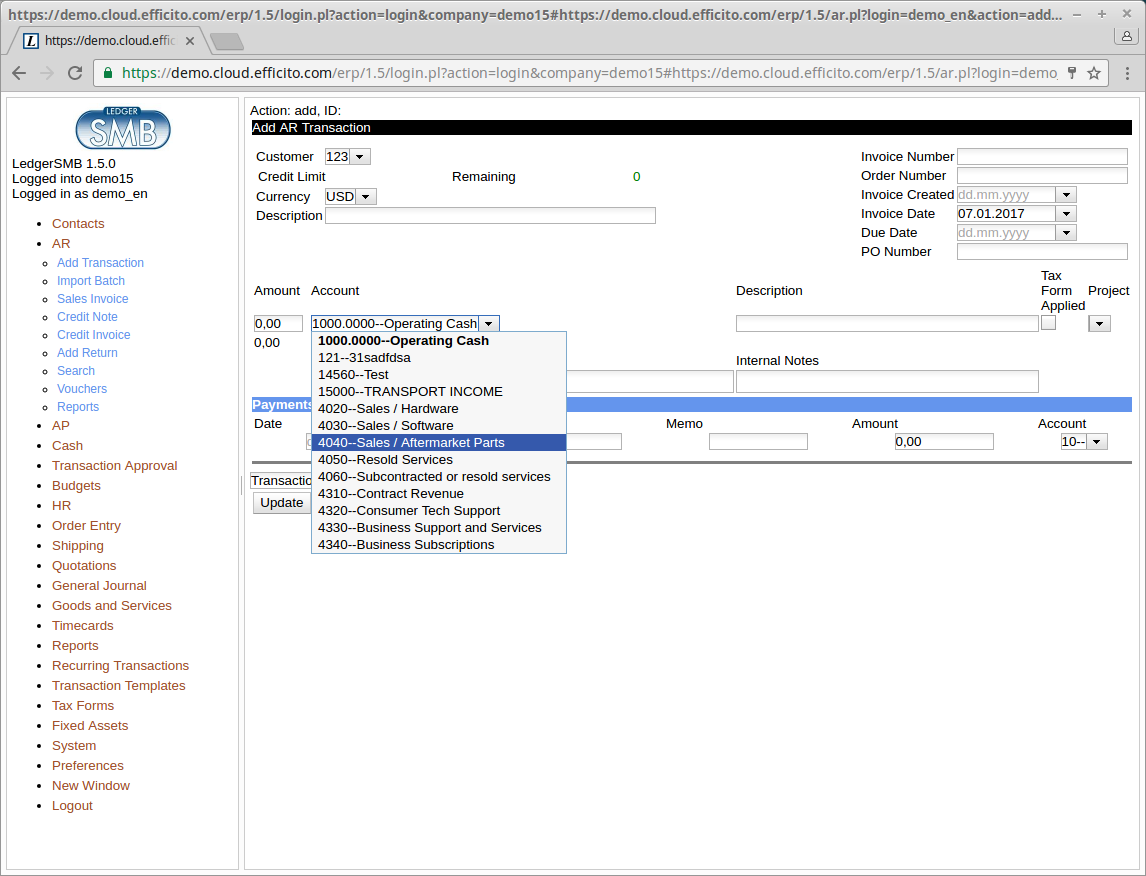
LedgerSMB is an open-source free ERP and accounting solution. It's built for small and medium-sized businesses.
LedgerSMB is simple yet a powerful system, it has a rich powerful accounting system, provides sales management, inventory manager with options to track the goods, fixed assets manager and a department manager.
This open-source system has a built-in email notification with attachment support, and it supports exporting documents to many formats like PDF, HTML, CSV and the popular office formats.

11- Odoo
Odoo is an enterprise-class open-source ERP solution. It has a rich ecosystem and many extensions that can replace or customize the default integrated modules. However, Odoo offers 2 editions, a community edition and enterprise professional edition, which can be overwhelming to choose, keep track of the upgrades and requires powerful IT support. So, we would recommend it to businesses with an IT department.
C. Office/ Spreadsheet inventory and warehouse templates
12- Warehouse Inventory Management for Microsoft Excel
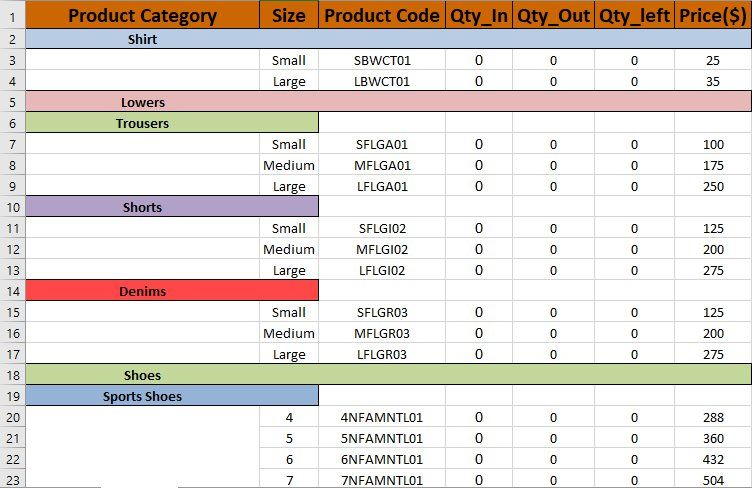
This is a simple inventory manager for Microsoft Excel. It uses the Excel program to provide a usable interface for the manager to keep track of their stock. It has features barcode and QR code support, mobile phone scanners for barcode/ QR code. This is a template-based system, it can run on any Microsoft Excel packages on Windows machine. However, We have tried it with LibreOffice and Numbers, and it works but lakes barcode/ QR code support.
Bonus
A- Warehouse Inventory Office Template
Microsoft Excel users have the luxury to look for a template that fulfills their requirements and customize it. There are many Excel templates online.
B- LibreOffice inventory templates
LibreOffice has an ecosystem where users can share templates and extensions. However, currently, there is no good inventory extensions/ spreadsheet template we would recommend. Hopefully, we will see some soon.
Conclusion
Inventory managers as part of the supply chain process vary from one business to another, It's up to the managers and executives to select the best options that ease their work and their employees. We would recommend going for ERP-based inventory managers instead of standalone solutions if you have a full supply chain process.
If you are running a simple warehouse, and you are just wanted to manage your stock, Excel templates or standalone inventory/ stock management solutions will do the trick.
In this article, we have covered several inventory management solutions. However, we did not cover custom packages which designed to run special warehouses or stores like medication/ drugs as pharmacy managers, IT assets managers and chemical assets/ warehouse/ laboratories assets management solutions. But, we are planning to review them in separate articles.


Related articles

